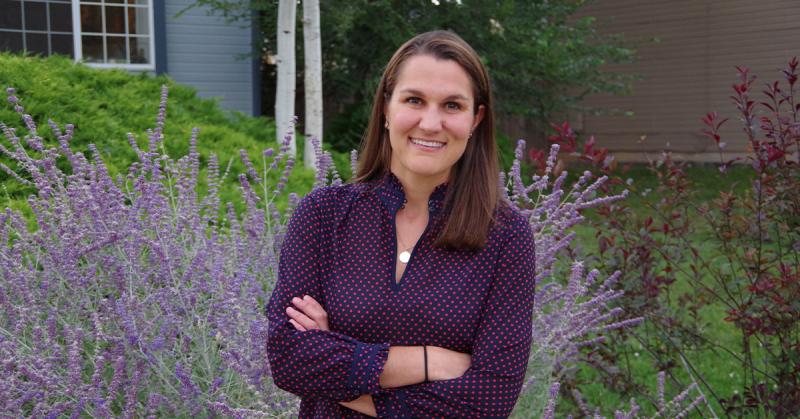Caregiving During COVID-19
PhD student Jessica King McLaughlin studies impact of caregiving on careers during the COVID-19 pandemic

Women comprise most of the informal (unpaid) caregivers in the United States, and the COVID-19 pandemic has made their lives even more complicated as they juggle careers and caregiving commitments during a global health crisis.
University of Denver Graduate School of Social Work PhD candidate Jessica King McLaughlin has been studying the experiences of working female caregivers to better understand the types of workplace policies that help (or hinder) them in their dual roles as paid employees and unpaid caregivers of parents, spouses or adult children. For her dissertation, “An Intersectional Perspective on the Role of Workplace Policy Among Employed Female Caregivers During the Coronavirus Pandemic,” King McLaughlin interviewed 29 working female caregivers (ages 27–75) to understand how informal caregiving impacted their careers.
Participants shared a diversity of experiences — “There wasn’t one typical scenario of caregiving,” King McLaughlin notes. For some participants, the pandemic made their lives easier because they could be home more and had more flexibility in how, when and where they did their jobs. Others who started caregiving during the pandemic worried about what their caregiving would look like when they returned to the office. Many shared feelings of isolation and anxiety about bringing coronavirus home, as well as feelings about being “overlooked”; unlike medical workers, King McLaughlin explains, informal caregivers weren’t prioritized for vaccination despite caring for highly vulnerable people.
Many participants also expressed feelings of guilt, King McLaughlin says, because they were spending more time working in the home and less time caring for their loved one.
King McLaughlin was a clinical social worker prior to joining GSSW’s doctoral program. She says she was frustrated by her inability to influence the systemic issues that impacted the people she worked with and saw a PhD in social work as a way to influence social policy.
“I was feeling burnout and thinking about other caregiving-type roles, of caregiving professionally versus caregiving personally,” says King McLaughlin, who aims to work for a policy thinktank after graduation.
Through her interviews with caregivers, King McLaughlin found that not all policies that were intended to help actually did. For instance, the caregivers in King McLaughlin’s study weren’t using employee assistance programs much; although employers were offering counseling services, what caregivers needed were flexible schedules and time off to accommodate things like medical appointments for their loved ones.
“Employers should do a needs assessment to determine what employees really need,” King McLaughlin points out.
King McLaughlin also found that having a supportive supervisor and workplace culture were key — something that was often missing in male-dominated workplaces.
Informal caregiving saves more than $470 billion a year in public benefits and insurance costs, King McLaughlin notes. Making it possible for people to be a caregiver and pursue a career is crucial since they need and want to do both. Given the critical role and economic impact of caregiving, employers need to change how they do business, King McLaughlin says. “We need to create a culture of care and bring that into the workplace. We’re not just a person who comes to work and doesn’t have an outside life. We all have external responsibilities, and the pandemic has made it clear that we need care and compassion.”
Informed by her research, King McLaughlin recommends passage of federal paid leave, tailoring workplace benefits to workforce needs, allowing flexibility for all employees, and creating universal access to accommodative workplace policies for all employees at an organization, regardless of their job status. “We need to create a different idea around what being an employee means in the workplace.”




